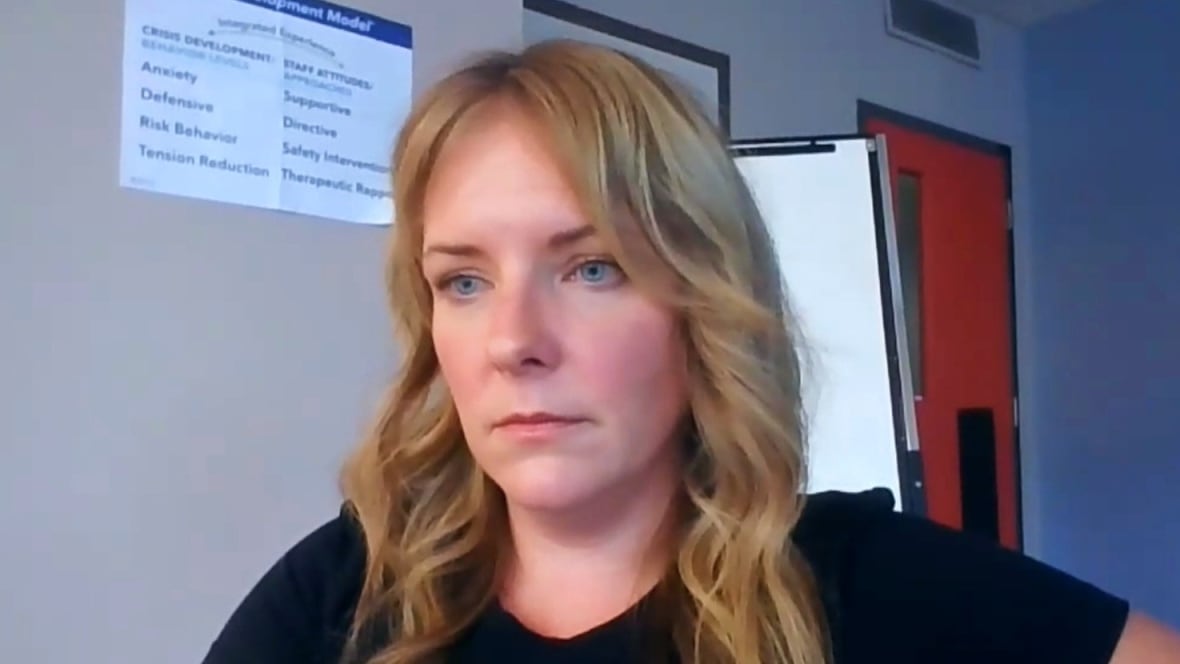[published_date]
What use has it been to declare intimate partner violence an epidemic in Nova Scotia?
According to Meghan Hansford, some good, practical changes have come out of it.
She points to a shift from police agencies — which have started saying in their initial public statements when they believe a crime is the result of intimate partner violence — and an extension to paid leave for people fleeing abuse.
But she’s looking for more.
Hansford, who has a PhD in family violence intervention and is the program manager at Adsum for Women and Children, said non-profit groups, including Adsum, are shouldering a heavy burden in responding to the crisis and need more help.
“What we haven’t seen, as the rates of gender-based violence continue to rise, [is] the response from the provincial government that matches the scale of the problem,” she said in an interview.
Nova Scotia legislators unanimously adopted a bill on Sept. 12, 2024, declaring intimate partner violence an epidemic. Over the course of just a few months following the declaration, there was a spate of domestic homicides.
Premier Tim Houston and other government officials met with a coalition of support groups in early 2025, and later drew together nearly $24 million to give, over four years, to the province’s 10 transition houses, which helps women and children fleeing violence.
Hansford said that funding will help transition houses “stabilize,” but it isn’t enough.
How much money would it take?
In total, across all departments, the current annual provincial spend on intimate partner violence is $102 million – $6 million shy of what Hansford says should be the baseline budget.
She said an “epidemic level” response would include $100 per capita, which would be $108 million for Nova Scotia’s current population of about 1,079,000 people.

She said an annual spend of $180 per capita, or $194 million, would be “transformative.”
Leah Martin, the Nova Scotia cabinet minister responsible for the Status of Women, said she’s encouraged by the work the government has done over the past year, including the uptick in spending.
“Would we like to see that continue to grow? Of course we would,” she said in an interview. “But we also have to make sure that the math maths and the money matches up.”
Even if spending does grow, Hansford said the government also needs to change the way those funds are delivered.

She said too much government money is allocated through yearly grants, with groups that support survivors of gender-based violence applying over and over again without any certainty about what their budget will be year-to-year.
Hansford and others have repeatedly called for sustained, core funding, which the government has not committed to.
Hundreds applied for ministers’ table
Martin said she thinks the province has come “leaps and bounds” in the past year on its response to intimate partner violence. She pointed to the ministers’ table on gender-based violence as a highlight.
The table, which is slated to meet for the first time in October, will be led by Martin and Justice Minister Becky Druhan. The goal is to “advance and drive action to prevent gender-based violence and provide better support for victims and survivors,” according to the province’s description.
Members will include survivors, families, community organizations and front-line service providers. Applications for a spot at the table recently closed and Martin said members are still being selected.
More than 250 people applied for 25 spots.
Martin said the response reflects the prevalence of this type of violence.
“I hope to see that come to an end someday, and that day is not today, but I’m grateful to know that we’ve got lots of people around that are rallying to see this work move forward faster.”
Hansford said she believes the ministers’ table could “play a vital role” in spurring change, especially “long-term transformation.”
But, she added, “there are critical and long-standing issues that demand immediate intervention and cannot be deferred to further studies, reports or discussion.”

